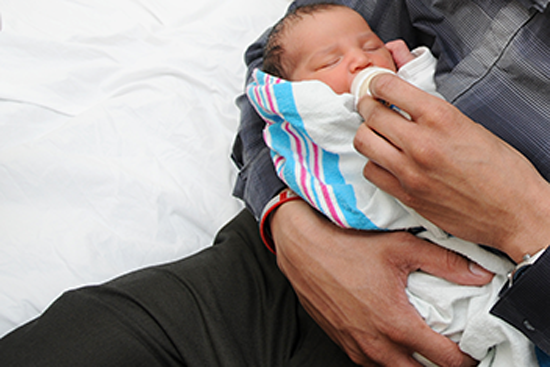Low Birth Weight Linked to Diabetes in African American Women
First large-scale study followed 21,000 women over 16 years

African American women born at a low or very low birth weight may be at a higher risk for developing type 2 diabetes, according to a study by BU School of Public Health (SPH) researchers.
The findings, which appeared in the September 2014 issue of Diabetes Care, may explain, in part, the higher occurrence of type 2 diabetes in African American populations, which have a high prevalence of low birth weight.
The researchers from BU’s Slone Epidemiology Center followed more than 21,000 women enrolled in the Black Women’s Health Study over the course of 16 years, analyzing characteristics such as birth weight, current age, family history of diabetes, body mass index, physical activity, and socioeconomic status.
The study results indicate that women with low birth weight had a 13 percent higher chance of developing type 2 diabetes than those with normal birth weight, and those with very low birth weight had a 40 percent higher chance of developing the disease.
Low birth weight was defined as less than 2.5 kg, and very low birth weight as less than 1.5 kg. It appeared that body size did not play a role in this relationship, as there was a clear association between birth weight and diabetes even for women who were not obese.
Although previous studies have shown that characteristics such as birth weight can have a major impact on adult health, this is the first large-scale study to demonstrate this effect in an African American population.
“African American women are at increased risk of developing type 2 diabetes, and also have higher rates of low birth weight than white women,” said Edward Ruiz-Narváez, assistant professor of epidemiology at SPH. “Our study shows a clear relationship between birth weight and diabetes that highlights the importance of further research for this at-risk group.”
According to the researchers, there are two leading hypotheses for the phenomenon. The first, known as the “thrifty phenotype hypothesis,” postulates that once the newborn body perceives that it lacks nutrition, it reprograms itself to absorb more nutrition, causing an imbalance in metabolism that eventually leads to type 2 diabetes. The second, known as the “fetal insulin hypothesis,” posits that genes responsible for impaired insulin secretion also have a negative effect on birth weight. Some of these genes have been discovered in recent studies, supporting the latter hypothesis.
Funding for the study came from the National Institute on Minority Health and Health Disparities, the National Cancer Institute and the American Heart Association.